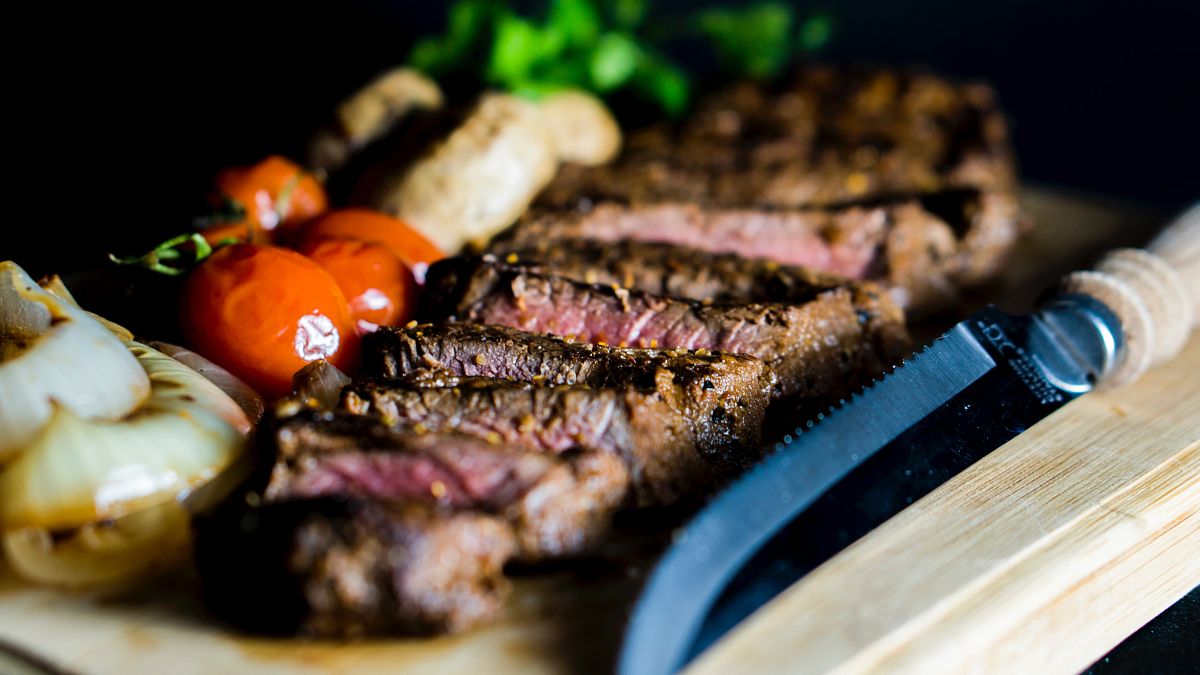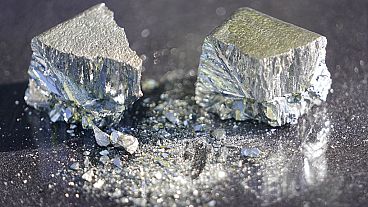Scientists in Israel are growing their own steaks in the hope that it could one day help to solve the problem of food production and climate change.
Scientists in Israel are growing their own steaks in the hope that laboratory-grown meat could one day help to solve the problem of food production and climate change.
Cattle rearing is a major source of greenhouse gases and researchers across the world are looking at alternative ways to produce meat and chicken.
One of several Israeli start-ups working on the creation of cultured meat is Aleph Farms.
The company's chief scientist, Professor Shulamit Levenberg from Technion University, developed the idea of growing bovine cells on a scaffold from developing methods of growing human tissue implants.
"In skeletal muscle tissue you take muscles and then you grow them on a scaffold with the hope to get a piece of muscle that you can later implant and with this technology in mind we decided to now move to edible scaffold and using bovine cells, cells from cows, to make this piece of tissue edible, so it's a kind of meat that you can really eat," said Levenberg.
Aleph Farms CEO Didier Toubia admits there is a long way to go before the production costs of this cultured meat drop and the meat strips, now about three millimetres thick, are comparable with traditionally reared beef.
One of the biggest market challenges is seen to be the cost of cultured meat production. "It is around $20,000 to $40000 (€ 17,500- € 35,000) per kilogram, if you want to go into the market, you are trying to get into the $5 (€4.37) range," said Professor Yaakov Nahmias from the Hebrew University.
Various companies have started producing what they call "clean meats" for increasingly lower prices. Last year American company Memphis Meats' ground beef alternative was reputed to cost about $2,400 per pound which is about € 4,600 per kilo.
As the cost of cultured meat production is still too high to enter the market, for the time being, synthetic sirloins appear to remain out of reach for years to come.
Researchers and environmentalists though say the need for sustainable, lab-grown alternatives to industrial farming is essential.
Click on the video above to learn more about this project.



